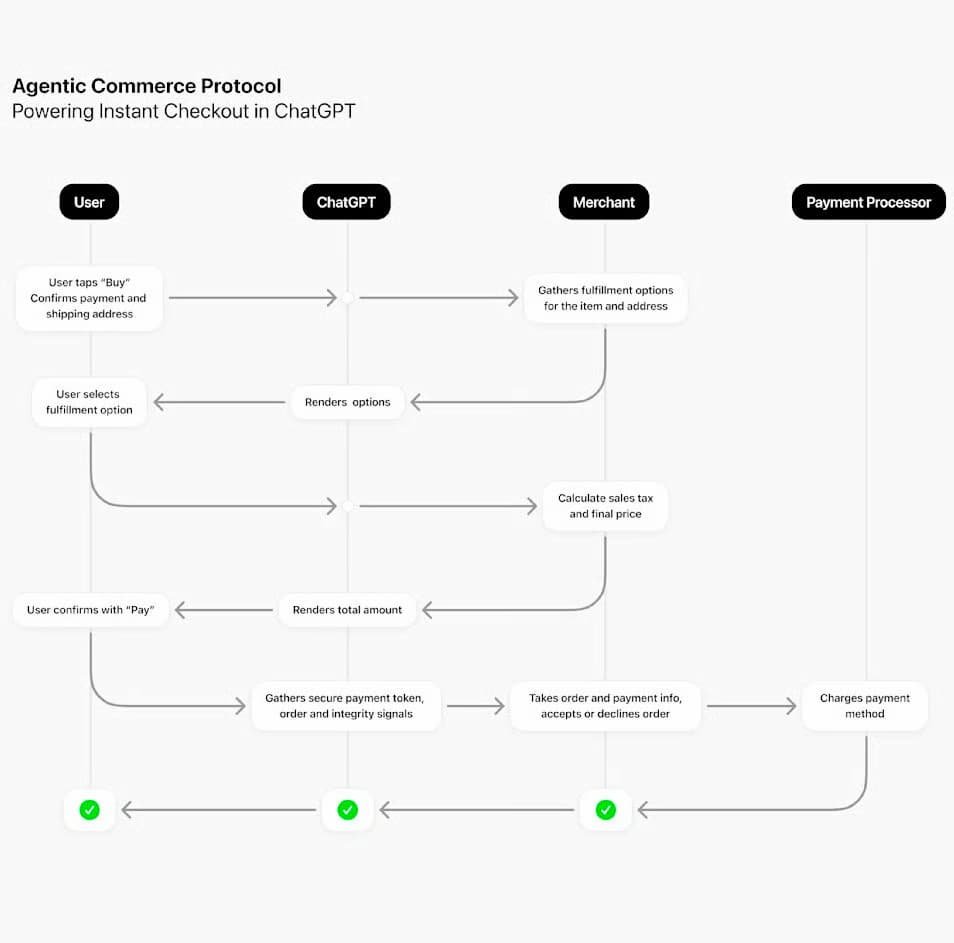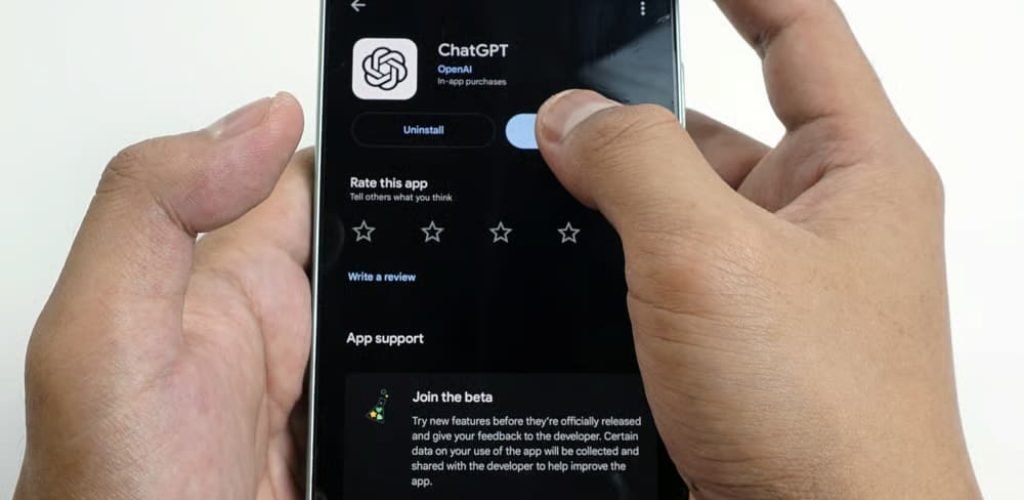With the launch of its Instant Checkout payment feature in the United States, ChatGPT (OpenAI) has taken a decisive step into e-commerce. The tool allows users to purchase products directly within the chat interface, potentially transforming how consumers discover and buy items online — and challenging the dominance of traditional search-engine-based shopping.
How ChatGPT’s Instant Checkout Works
A user can simply describe a product, specify their budget, and instantly receive a curated list of recommendations, all without leaving the platform.
The system runs on the open-source Agentic Commerce Protocol, developed in collaboration with Stripe, which enables seamless integration for online merchants. Businesses pay only a small commission per transaction, while the experience remains free for end users.
“For sellers, it’s a new way of reaching hundreds of millions of people while retaining full control of their payments, systems, and customer relationships,” OpenAI said in a statement.
Documentation for developers and merchants is already available, signaling that OpenAI intends to build a global commerce ecosystem around its conversational platform.

Etsy Leads the Way — Shopify and Major Brands to Follow
The first official partner for Instant Checkout is Etsy, but OpenAI confirmed that more than one million Shopify merchants — alongside major fashion and lifestyle brands such as Glossier, Skims, Spanx, and Vuori — will soon join the program.
A new multi-basket feature will also enable users to buy multiple items from different sellers in one transaction, with the payment page clearly showing which merchant fulfills each order.
According to OpenAI, product suggestions are entirely organic, based on the user’s prompts rather than sponsored listings — at least for now. Industry analysts believe that paid placements and promoted results could become part of the model later, echoing how traditional search evolved into advertising-driven ecosystems.
A Challenge to Google’s Search-Commerce Model
Beyond its retail implications, ChatGPT’s entry into e-commerce signals a deeper shift in the digital economy. For decades, Google’s advertising-based search model has dictated how brands build SEO and marketing strategies. Now, conversational AI could redefine that balance.
Recent studies show a measurable migration from traditional search engines to AI-based assistants. The Innovating with AI agency reported that Google’s market share dipped below 90% for the first time since 2015, while the AI Search Archetypes survey (Spring 2025) found that 43% of users now rely on AI daily for their information and product searches.
This behavioral shift is prompting rapid responses from other tech giants:
- Google is accelerating the rollout of its Gemini models.
- Microsoft continues to expand Bing AI integration.
- Apple is transforming Siri into Apple Intelligence.
- Samsung is investing heavily in Galaxy AI.
Retailers Are Already Racing Ahead
E-commerce platforms have been quietly preparing for this AI revolution. In the fashion sector:
- Amazon, the largest clothing retailer in the U.S., launched Rufus, an AI shopping assistant that lets customers find products through natural-language prompts.
- Zalando, Europe’s leading online fashion marketplace, recently introduced its own AI-powered search companion to help shoppers refine their style preferences.
As AI-assisted retail becomes mainstream, instant, conversational shopping may soon replace the familiar cycle of searching, scrolling, and comparing across multiple sites.
The Future: From Chatbot to Marketplace
With over 700 million weekly active users, ChatGPT already functions as one of the largest digital interfaces on the planet. By merging conversational search with integrated payments, OpenAI is positioning itself not just as a productivity tool but as a new kind of marketplace — one where conversation drives conversion.
Whether this signals the birth of a new e-commerce ecosystem or merely an experimental step in AI monetization, one thing is certain: the shopping experience is being rewritten, one chat at a time.






